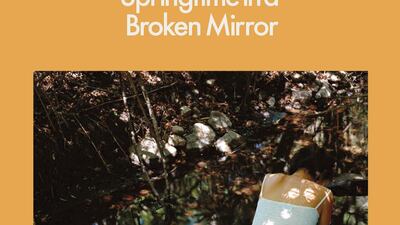Throughout the 1960s and 1970s the world felt the explosive impact of the Latin American Boom. This literary movement showcased the hitherto hidden talents of a generation of young, exciting, convention-defying Latin American writers. Colombian Gabriel García Márquez performed dazzling feats with his brand of magic realism; Peruvian Mario Vargas Llosa employed a more grounded realism in his depictions of political injustice and regional history. Argentina was ably represented by Julio Cortázar, Mexico by Carlos Fuentes.
These four writers, along with the likes of post-Boom Chileans Isabel Allende and Roberto Bolaño, remain for many Anglophone readers the most significant, and certainly the most well-known, Latin American literary exports. Vargas Llosa continues to thrill and provoke with his factual accounts and fictional treatments of conflict and corruption; fellow Nobel laureate García Márquez's One Hundred Years of Solitude goes on captivating devotees of world literature.
But Latin America is a huge area containing many celebrated authors yet to be translated into English. In 2015 Penguin Modern Classics took a step to redress this by publishing The Truce, a 1960 novel by a Uruguayan novelist, journalist and poet.
The writer was Mario Benedetti (1920-2009) a member of Uruguay's Generation '45 – a foreshock to the Boom – and regarded as one of the most important 20th-century Latin American writers, particularly in the Spanish-speaking world. He was also a revolutionary, forced into exile from his country after the military coup in 1973. It was while living in Mallorca in the 1980s that he wrote a novel about exile – one that Penguin has now translated into English for the first time.
A chapter in Springtime in a Broken Mirror seems similar to The Truce: both books revolve around a man and his written-down thoughts and deeds. The Truce has the subtitle "The Diary of Martin Santomé" and unfolds as a series of entries from one February to the next.
The book opens with a countdown: in six months and 28 days Martin will be in a position to retire. Springtime begins with a letter penned by a prisoner called Santiago to his wife. He also announces a countdown: in four years,
five months and 14 days he will be released.
But, as this novel develops, it becomes clear that it is no prison memoir, and that Santiago’s voice is actually one of many. He is a political prisoner in his native Uruguay; the book’s other characters – his wife Graciela, his nine-year-old-daughter Beatriz, his father Rafael and his friend Rolando – are all exiles in Buenos Aires.
Every chapter is devoted to a different viewpoint. The complete novel is a remarkable collage of unique perspectives – or shards from that eponymous broken mirror, each of them offering reflections of the effects of love, history and political upheaval on individual lives.
Graciela becomes bored in her new secretarial job, dispirited in her new city (“like the landscape is dwindling, dying, running out”) and puzzled by the increasingly odd contents of her husband’s letters. She realises that their forced separation has turned her into a new woman. “I need him less and less,” she tells a friend. “I still feel a great affection for him, but as a fellow revolutionary, not as his wife.”
Eventually she falls for the louche Rolando, a man who is in two minds about the place he has ended up in (a “blessed and cursed country”) and scarred by the one he left behind.
Rafael, a widower, veteran teacher and “custodian of words”, ruminates on the life he led back in Montevideo and worries about his son’s wellbeing. “If only I could change places with him,” he muses. “But they won’t have me. I’m not sufficiently hateful.”
The novel’s most captivating narratives are those of father and daughter. At the outset, Santiago’s letters – written in an attempt to stay sane – are filled with joyful memories, sanguine reports of adapting and enduring, and love for his wife. Later, though, as they grow digressive, disjointed and finally fragmented, we come to wonder whether time inside has taken its toll and, as he inches closer to freedom, how he will survive outside.
Meanwhile Beatriz emerges as the only character enchanted by Buenos Aires. As she wanders through the busy, modern city she charms the reader with her child’s-eye view of the world. “The air stewardesses walk in pairs so they don’t get lost,” she informs us. “Their husbands are called pilots.”
Tangos are “sad music that you dance to when you’re happy so that you’ll feel sad again”. Amnesty “is like a holiday that’s going to spread through the whole country”.
Santiago’s updates and Beatriz’s observations brim with clever wordplay. Nicholas Caistor has done an admirable job translating the assortment of puns, wonky definitions and jumbled thoughts.
Equally stimulating are the italicised sections describing the experiences of what appear to be real-life exiles – Benedetti included. These tightly focused vignettes are brief stories of danger, confusion and dislocation. Some émigrés are resigned to their fate, others are brought low by sad truths. In the early days, says one, exile was simply the harsh reality of having to live so far away. “Now it is also that of having to die so far away.”
This is a masterful novel, but for English-speaking readers it is also an overdue one. More Benedetti can’t come soon enough, I say.
_________________
Read more:
Renowned Egyptian author Ahmed Khaled Tawfik dies at 55
Ahmed Khaled Towfik: the pioneer of Arabic Sci-fi
Author Diana Darke tells a story of hope from Homs amid dark times and repeating history
_________________
